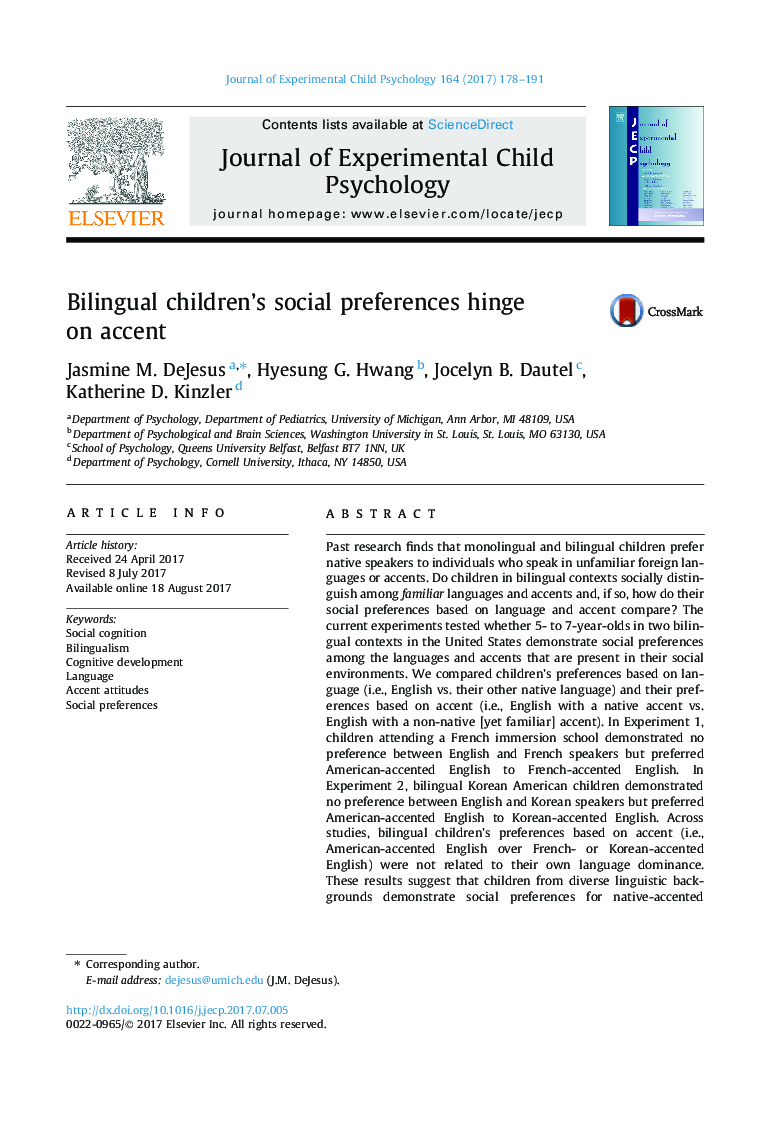| کد مقاله | کد نشریه | سال انتشار | مقاله انگلیسی | نسخه تمام متن |
|---|---|---|---|---|
| 5039953 | 1473448 | 2017 | 14 صفحه PDF | دانلود رایگان |
- Bilingual children preferred native accents over familiar non-native accents.
- Children showed no preference between English and their other native language.
- Language dominance was not related to preference for native over non-native accent.
- Results suggest that accent impacts bilingual children's social preferences.
Past research finds that monolingual and bilingual children prefer native speakers to individuals who speak in unfamiliar foreign languages or accents. Do children in bilingual contexts socially distinguish among familiar languages and accents and, if so, how do their social preferences based on language and accent compare? The current experiments tested whether 5- to 7-year-olds in two bilingual contexts in the United States demonstrate social preferences among the languages and accents that are present in their social environments. We compared children's preferences based on language (i.e., English vs. their other native language) and their preferences based on accent (i.e., English with a native accent vs. English with a non-native [yet familiar] accent). In Experiment 1, children attending a French immersion school demonstrated no preference between English and French speakers but preferred American-accented English to French-accented English. In Experiment 2, bilingual Korean American children demonstrated no preference between English and Korean speakers but preferred American-accented English to Korean-accented English. Across studies, bilingual children's preferences based on accent (i.e., American-accented English over French- or Korean-accented English) were not related to their own language dominance. These results suggest that children from diverse linguistic backgrounds demonstrate social preferences for native-accented speakers. Implications for understanding the potential relation between social reasoning and language acquisition are discussed.
Journal: Journal of Experimental Child Psychology - Volume 164, December 2017, Pages 178-191
